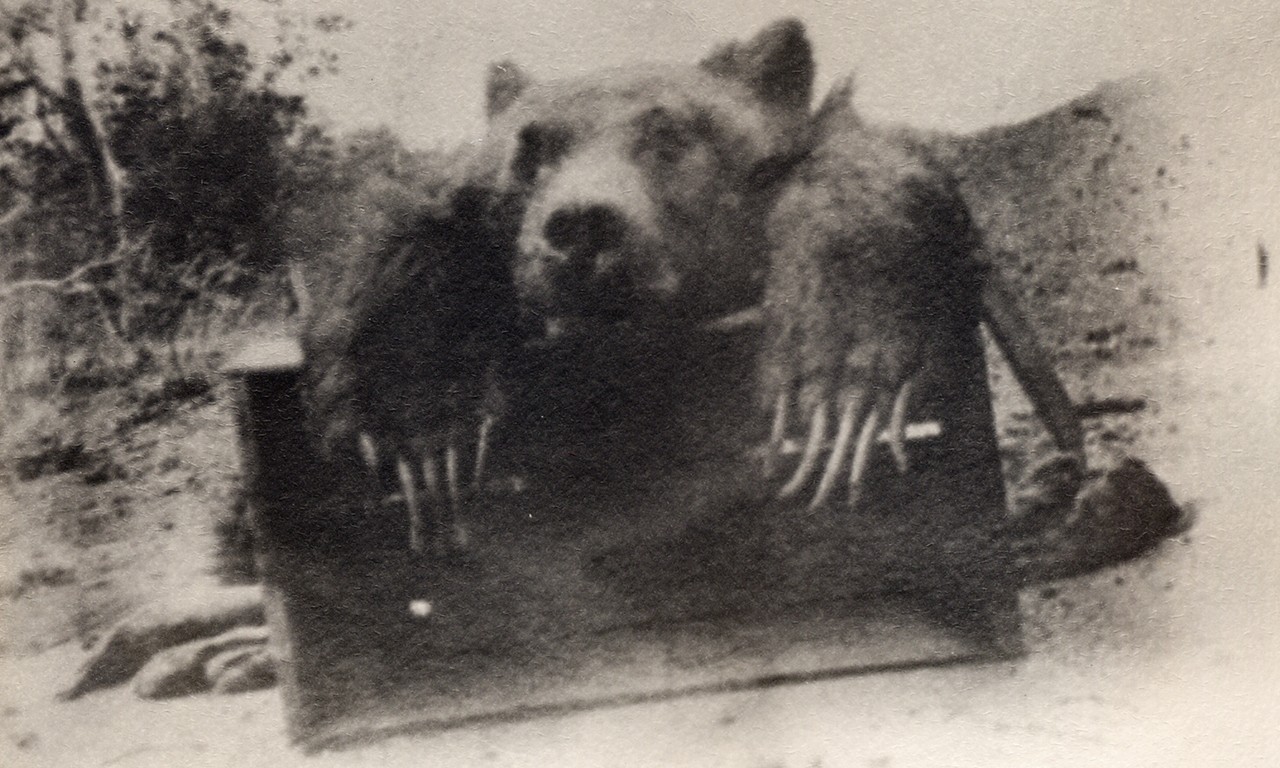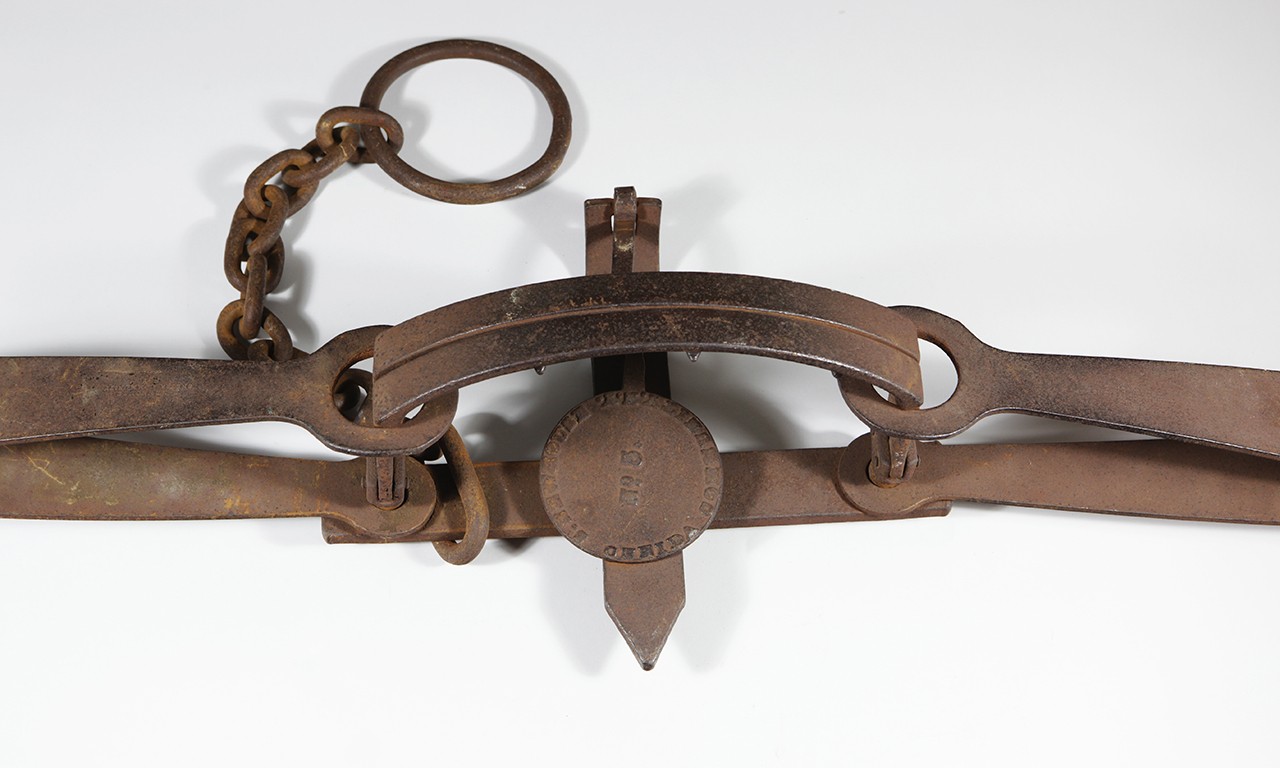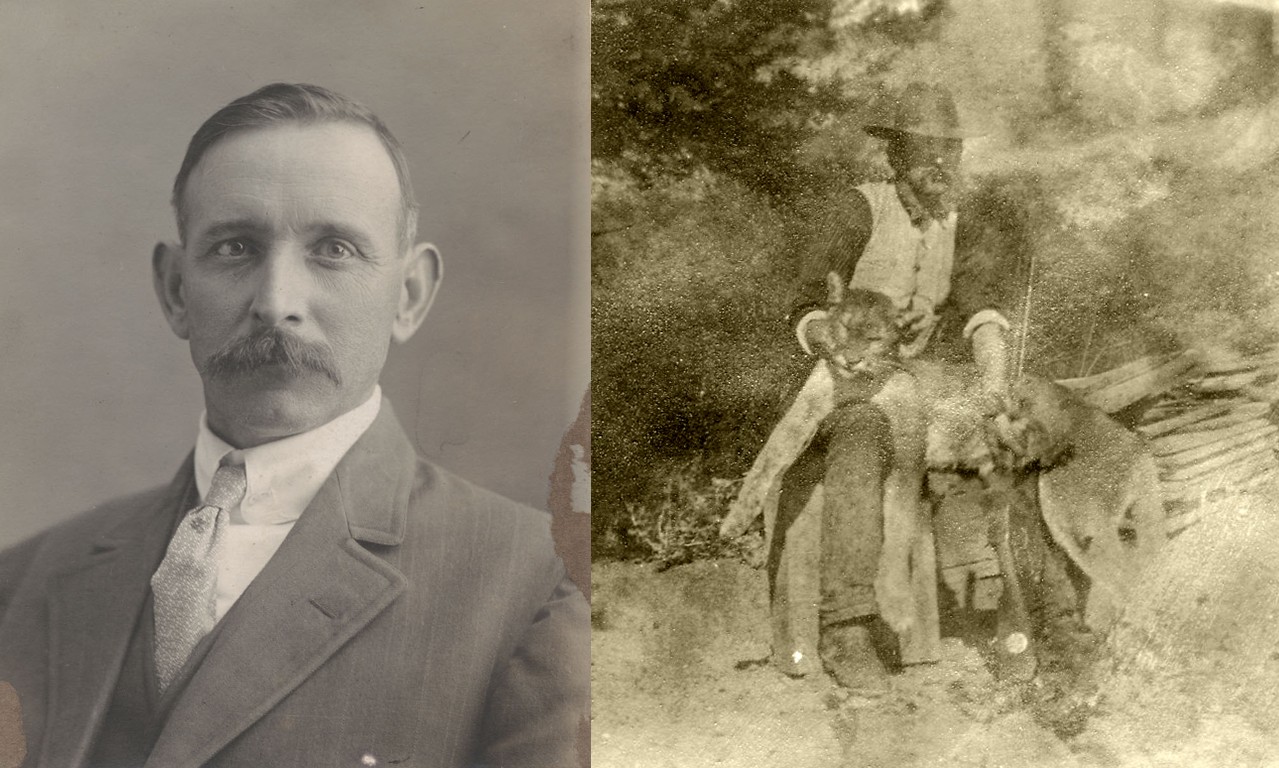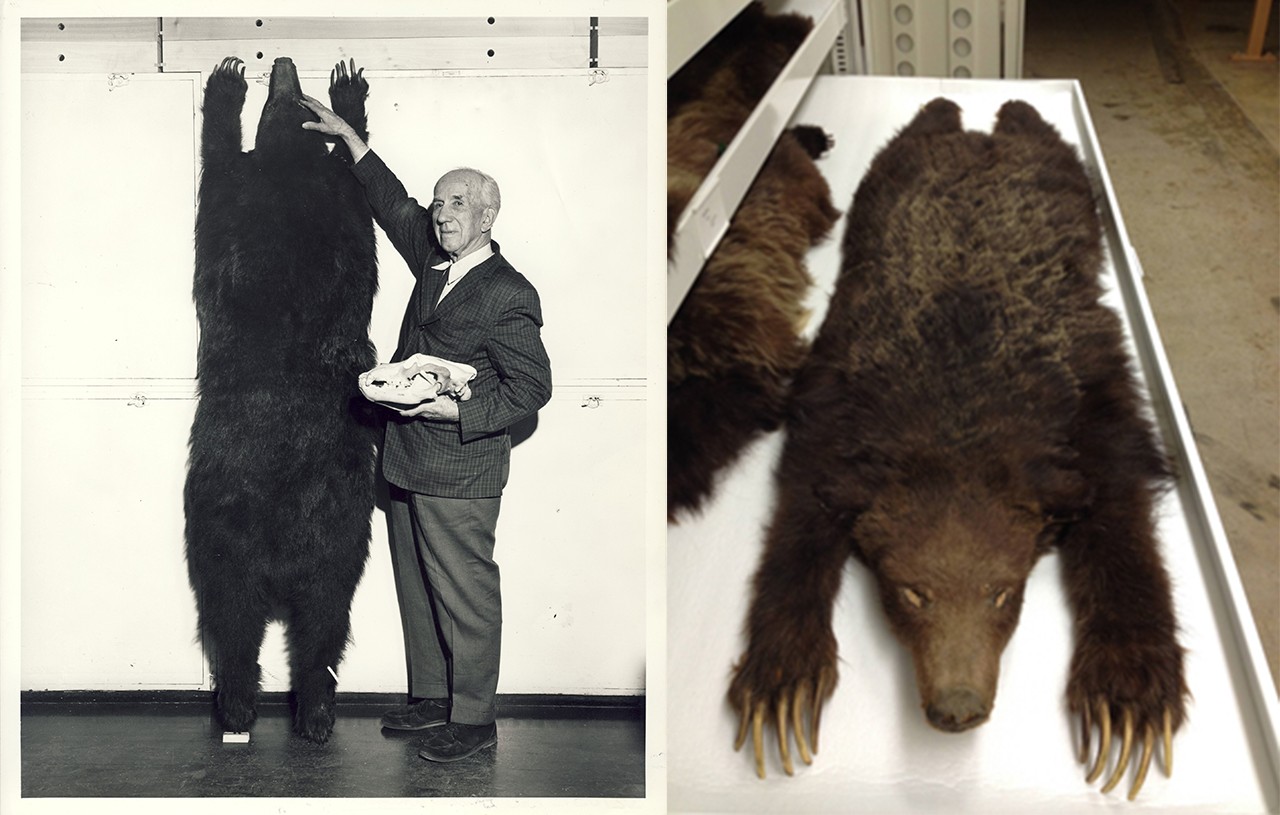© 2023 Kreativa. All rights reserved. Powered by JoomShaper
The Ballad of Old Moccasin John: The Last Grizzly of Orange County
 |
| Trap Used to Snare Last Grizzly Bear of Orange County, 1865-1888 Made by Sewell Newhouse; Oneida Community, New York Steel; 34 1/2 x 24 1/4 x 7 3/8 in. 2433.1 Gift of Mr. & Mrs. William B. Rochester |
Murder Most Grisly
There is a reason that you hear a lot more about mountain lion attacks in the hills of Orange County than you do grizzly bear attacks: 2022 marks the centennial of the last reported wild California grizzly’s death. Ironically, the very symbol found on California’s state flag was largely hunted for the havoc they wreaked for farmers. This is the story of one of the last surviving California silver-tailed grizzlies. On Saturday it will have been 114 years since Old Moccasin John, also known as Little Black Bear and far more confusingly not male or a black bear, was killed.
 |
| Old Moccasin John, Last Silver-Tailed Grizzly Bear of Orange County, 1908 Unknown photographer; Orange County, California Photographic print; 5 1/2 x 7 in. 2433.2 Gift of Mr. and Mrs. William B. Rochester |
Cussin’ Jim Smith
Before Europeans came to Orange County, grizzlies tended to live at relatively low elevations in the Santa Ana Mountains. It was not until the 1860s that increased settlement in the area pushed the bears deeper and higher into the foothills. Their numbers dwindled to the point that they were assigned individual names. Accounts referencing bears read like feuding families, with bears obnoxiously disrupting some regional agriculture, being accused of killing a lot of livestock when in truth they only rarely ate any meat other than carrion, and—as those of us who read Winnie the Pooh can probably guess—severely, impressively even, disrupting honey production. Jim Smith of Holy Jim Canyon fame ran, in addition to other things, a sizable apiary in the canyon of his namesake. Old Moccasin John met a lure that she could not ignore, and one fateful day destroyed 30 hives for the delicious honey they held. It was a crime for which she would be sentenced to death.
 |
| Detail of 2433.1 Gift of Mr. & Mrs. William B. Rochester |
It’s a Trap!
This bear trap was set for her on a path that she had previously been spotted on. The trap, often described as a mountain lion trap, is in fact an Oneida Newhouse no. 5 Community Bear Trap. Oneida remains to date a household name in steel production. Sewell Newhouse, the resident blacksmith of the Oneida Community which was a perfectionist religious communal society based in New York, first started producing steel traps in 1845. By the 1860s the Oneida Community was making as many as 200,000 traps a year which would go on to double that decade. It is estimated that by 1900 two-thirds of the global production of bear traps was dominated by Oneida. The no. 5 is a relatively early model that was produced between 1865 and 1888. This particular trap was owned by Andrew Joplin, the son of J. C. Joplin who, for thirty years, was the County Treasurer of Orange County. The younger Joplin was a rancher and hunter.
 |
|
| Andrew Joplin, date unknown UC Irvine, Libraries, Special Collections |
News Clipping Related to Andrew Joplin, 1909 Santa Ana, California Ink and paper; 11 3/8 x 8 in. 30950A Gift of Mrs. Rosa Eschen |
Prey No More
It is not recorded what Joplin baited the trap with. Perhaps her final meal was a cut of meat or, more poetically, one last honeycomb. Whatever the case, Old Moccasin John took the bait. On the morning of February 26, 1908, Joplin and his posse returned to check the trap and found the whole contraption missing with an obvious trail left in its stead. They stole after Orange County’s last grizzly, their party led by dogs who had at this point picked up the bear’s scent. Old Moccasin John had made it five miles dragging the heavy steel trap with her the entire way. Bloodied and exhausted, she still fought off the dogs when they tracked her down. However, the dogs bought time for her armed hunters to encircle her, making a retreat impossible. She took two bullets before a shot from Game Warden Ed Adkinson finally ended her struggle.
 |
|
| U.S. Dept. of Interior, Fish and Wildlife Service with Old Moccasin John, 1908 Unknown photographer; Washington, D.C. Photographic print; 10 x 8 in. 32705 Gift of Harry R. Peterson |
Pelt of Old Moccasin John. Photograph courtesy of the Smithsonian. |
Dubious Accolade
Moccasin John was skinned, her skull removed from her denuded carcass. Her killers draped her heavy pelt over a crate and took a posed trophy shot flaunting her deadly claws. Shortly thereafter Joplin sent Old Moccasin John’s skin and bones to Washington. A photograph taken by the U.S. Dept. of Interior, Fish and Wildlife Service shows her to be little larger than a man. In a 1908 letter written to Mr. Joplin from C. Hart Merriam the first Chief of the Division of Economic Ornithology and Mammalogy of U.S. Dept. of Agriculture, Merriam writes "It is an old female grizzly," leading to conflicting information about the name of the bear. Some continue to call her Old Moccasin John, others call her “Little Black Bear.” Her remains eventually make their way to the Smithsonian where she joins their natural history collection. Andrew Joplin is promised by the biological survey chief C. Hart Merriam, that his name will be "forever labeled" for his part in the killing of Orange County’s last grizzly.
Text and images may be under copyright. Please contact Collection Department for permission to use. References are available on request. Information subject to change upon further research.

Comments 1
Good post.